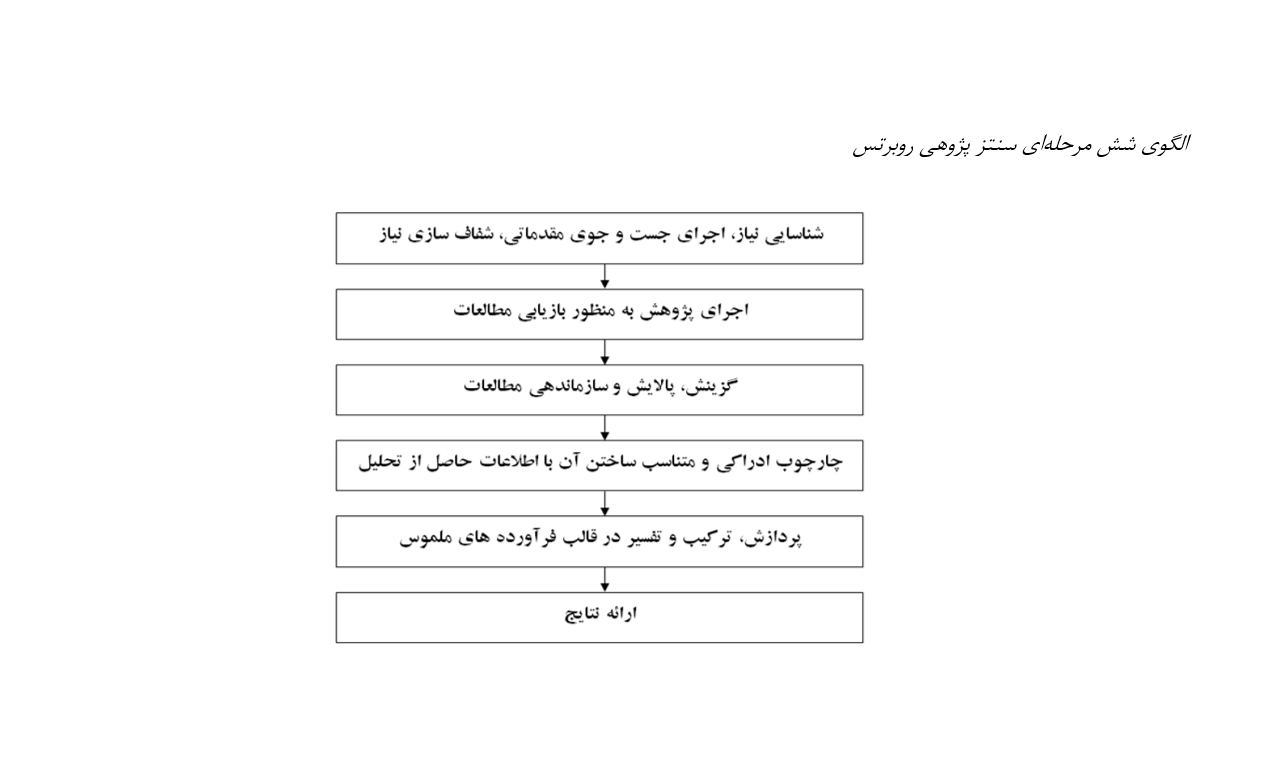Research Synthesis and Prioritization of Dimensions, Components, and Indicators of Elderly Caregiver Empowerment
Keywords:
Empowerment, Elderly Caregiver, Modeling, Hierarchical Analysis, Psychological SupportAbstract
The aim of this study was to determine and prioritize the dimensions, components, and indicators of elderly caregiver empowerment. This research is applied in terms of its objective and adopts a mixed-methods approach in terms of methodology. In this study, a research synthesis method was employed to systematically review related studies, and qualitative analysis was used to identify the main dimensions and components of elderly caregiver empowerment. The results identified five key dimensions in the training section: practical skills, communication skills, psychological and emotional support, management and leadership, and the use of technology. Moreover, in the empowerment section, seven dimensions were identified: training and skill development, healthcare services, social and psychological support, living environment and accessibility, financial and economic support, family awareness and education, and cultural awareness and information dissemination. Subsequently, using Chang’s Fuzzy Delphi techniques, the identified dimensions and components were prioritized. Elderly caregiver empowerment requires fundamental improvements, particularly in the areas of practical training and psychological and emotional support, whereas the use of technology ranked lower due to implementation complexities and limitations. The empowerment model was designed by integrating research findings and expert feedback, and by presenting a comprehensive model, the study explains the factors influencing the empowerment of elderly caregivers and provides practical recommendations to improve the quality of training and skill development of these caregivers.
References
Amini, A., Toghiani, N., & Shabani, K. (2023). Explaining the components of urban space specific to the elderly with an environmental psychology approach (case study: District 8 of Shiraz). Journal of Applied Research in Geographical Sciences, 23(68), 403-426.
Bagheri, M. (2018). Investigating the effect of communication skills training for caregivers and the elderly on the healthy lifestyle of the elderly in Khoroozgh city, Isfahan province
Bai, W. (2023). Research on Harbin Smart Community-Based Elderly Care Services. Lecture Notes in Education Psychology and Public Media, 30(1), 106-111. https://doi.org/10.54254/2753-7048/30/20231590
Borhaninejad, V., Mansouri, T., Hoseyni, R., Kojaie bidgoli, A., & Fadayevatan, R. (2017). The relationship between diabetic knowledge and self-care among the Elderly with diabetes Type 2 in Kerman-2016 [Original research]. Journal of Gerontology, 1(3), 1-10. https://doi.org/10.18869/acadpub.joge.1.3.1
Boston, N., & Hood, S. (2001). An inner City GP Unit Versus Conventional Care for Elderly Patients: Prospective Comparison of Health Functioning, use of Services and Patient Satisfaction. Family Practice, 18(2), 141-148. https://doi.org/10.1093/fampra/18.2.141
Chen, Z., Liu, J., & Zheng, Y. (2022). Evolutionary Game Analysis of Community Elderly Care Service Regulation in the Context of “Internet +”. Frontiers in Public Health, 10. https://doi.org/10.3389/fpubh.2022.1093451
Cheng, T., Liu, C., Yang, H., Wang, N., & Liu, Y. (2022). From service capacity to spatial equity: Exploring a multi-stage decision-making approach for optimizing elderly-care facility distribution in the city centre of Tianjin, China. Sustainable Cities and Society, 85, 104076. https://doi.org/10.1016/j.scs.2022.104076
Çiftci, N., Yıldız, M., Yildirim, gt, & Ömer. (2023). The Effect of Health Literacy and Health Empowerment on Quality of Life in the Elderly. Psychogeriatrics. https://doi.org/10.1111/psyg.12969
Das, S., Adhikary, A., Laghari, A. A., & Mitra, S. (2023). Eldo-care: EEG with Kinect sensor based telehealthcare for the disabled and the elderly. Neuroscience Informatics, 3(2), 100130. https://doi.org/10.1016/j.neuri.2023.100130
Ghorbani, M., Salehabadi, R., Mahdavifar, N., & Rad, M. (2021). Factors Related to Nurses’ Attitudes Toward the Elderly Care: The Predictive Roles of Altruism, Moral Intelligence, Life Satisfaction and General Health [Research]. Salmand: Iranian Journal of Ageing, 16(2), 248-259. https://doi.org/10.32598/sija.16.2.2767.1
Haji Zadeh, A. A. H., & Tajvar. (2024). The impact of population aging on health system functions: A systematic review. Journal of Elderly Studies, Iranian Journal of Gerontology. https://salmandj.uswr.ac.ir/article-1-2640-en.html
Mahdi, H., Maddah, S. M. B., & Mahammadi, F. (2016). The Effectiveness of Self-Care Training on Quality of Life Among Elderlies With Diabetes. ijrn, 2(4), 32-39. https://doi.org/10.21859/ijrn-02045
Mirzaie, M., & Darabi, S. (2017). Population aging in Iran and rising health care costs. Iranian Journal of Ageing, 12(2), 156-169. https://doi.org/10.21859/sija-1202156
Nguyen, H. M., Ngo, T. T. N., & Nguyen, T. T. (2024). Assessment of the Effects of Yoga on Self-Perceived Health of Elderly [Original Article]. Annals of Applied Sport Science, 12(1), 0-0. https://doi.org/10.61186/aassjournal.1318
Salarvand, S., Hashemzadeh, A., & Delshad Noghabi, A. (2023). The sense of dignity of care and the perceived social support for hospitalized elderly patients. International Journal of Africa Nursing Sciences, 18, 100523. https://doi.org/10.1016/j.ijans.2022.100523
Salimi, F., Garmaroudi, G., Hosseini, S. M., & Batebi, A. (2015). Effect of self-care educational program to improving quality of life among elderly referred to health centers in Zanjan. Journal of Education and Community Health, 2(2), 28-37. https://jech.umsha.ac.ir/PDF/A-10-164-1.pdf
Shuhaimi, M. S. Z. (2024). The Social Entrepreneurship and Empowerment Culture Among Youth in Elderly Care. Majcafe, 32(1), 307-331. https://doi.org/10.60016/majcafe.v32.12
Soltani, M. H., Sahaf, R., Mohammadi Shahbolaghi, F., Ghaffari, S., Khosravi, A., Gohari, M. R., SÖNmez, U., ÖZdemİR, Y., & Emecen, A. (2012). Elderly, duration of hospitalization and hospital cost in Milad hospital in Iran Evaluation of Hospitalized Youngest-Old, Middle-Old and Oldest-Old COVID-19 Patients in Terms of Mortality and Risk Factors. Iranian Journal of Ageing, 6(S1), 58-65
UR. https://doi.org/10.29400/tjgeri.2023.346
Tehranineshat, B., Yektatalab, S., Momennasab, M., Bijani, M., & Mohammadi, F. (2020). The Experiences of Multiple Sclerosis Patients' Family Caregivers at the First Hospitalization of Their Patients: A Qualitative Study. Patient Preference and Adherence, 14, 1159-1172. https://doi.org/10.2147/PPA.S257746
Wang, C., Pan, R., Wan, X., Tan, Y., Xu, L., Ho, C. S., & Ho, R. C. (2020). Immediate Psychological Responses and Associated Factors during the Initial Stage of the 2019 Coronavirus Disease (COVID-19) Epidemic among the General Population in China. International journal of environmental research and public health, 17, 1729. https://doi.org/10.3390/ijerph17051729
Wang, Y., Xie, C., Liang, C., Zhou, P., & Lu, L. (2022). Association of Artificial Intelligence Use and the Retention of Elderly Caregivers: A Cross‐sectional Study Based on Empowerment Theory. Journal of nursing management. https://doi.org/10.1111/jonm.13823
Wang, Z., Ma, C., Han, H., He, R., Zhou, L., Liang, R., & Yu, H. (2018). Caregiver Burden in Alzheimer's Disease: Moderation Effects of Social Support and Mediation Effects of Positive Aspects of Caregiving. International Journal of Geriatric Psychiatry, 33, 1198-1206. https://doi.org/10.1002/gps.4910
Zahir, A., Staffaroni, A. M., Wickham, R. E., Quinn, C. M., Sapozhnikova, A., Seidman, J., & Chiong, W. (2020). Caregiver "Objective Attitude" toward Patients with Neurodegenerative Disease: Consequences for Caregiver Strain and Relationship Closeness. Aging & mental health, 1-7.

Downloads
Published
Submitted
Revised
Accepted
Issue
Section
License
Copyright (c) 2025 Longevity

This work is licensed under a Creative Commons Attribution-NonCommercial 4.0 International License.









